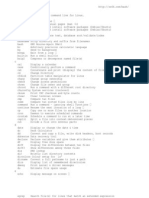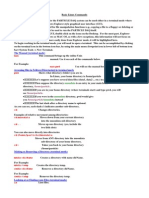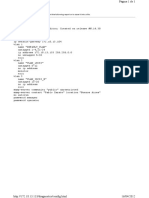0% found this document useful (0 votes)
46 views6 pagesLinux & Git Cheat Sheet
This document is a comprehensive cheat sheet for Linux and Git commands, covering file operations, directory operations, process management, file permissions, networking, text processing, system monitoring, and Git version control commands. It includes command syntax, descriptions, and examples for various tasks, making it a useful reference for users. Additionally, it provides tips on using the 'man' command for further information on each command.
Uploaded by
varam10Copyright
© © All Rights Reserved
We take content rights seriously. If you suspect this is your content, claim it here.
Available Formats
Download as PDF, TXT or read online on Scribd
0% found this document useful (0 votes)
46 views6 pagesLinux & Git Cheat Sheet
This document is a comprehensive cheat sheet for Linux and Git commands, covering file operations, directory operations, process management, file permissions, networking, text processing, system monitoring, and Git version control commands. It includes command syntax, descriptions, and examples for various tasks, making it a useful reference for users. Additionally, it provides tips on using the 'man' command for further information on each command.
Uploaded by
varam10Copyright
© © All Rights Reserved
We take content rights seriously. If you suspect this is your content, claim it here.
Available Formats
Download as PDF, TXT or read online on Scribd
/ 6



































































































